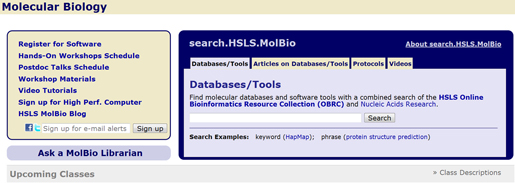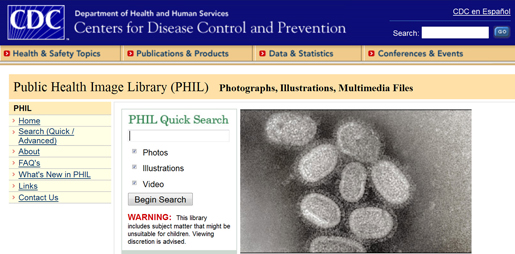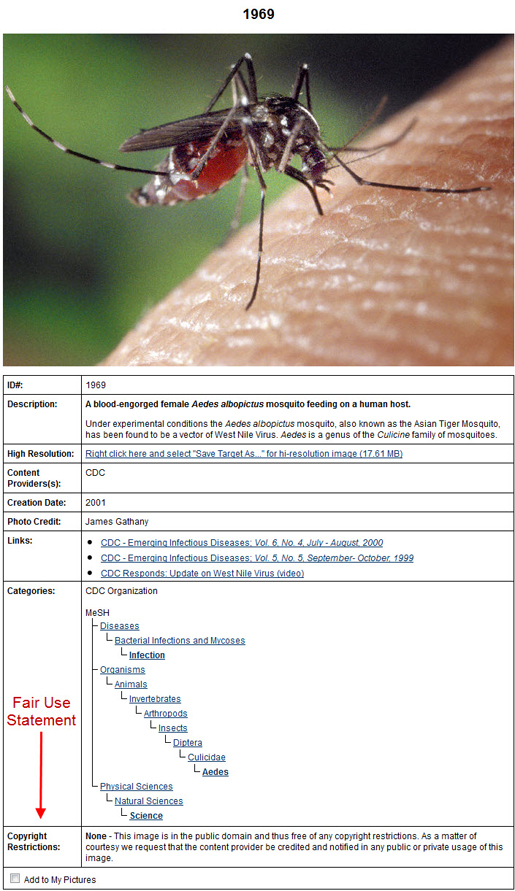Are you looking for software to help you make sense of your data? Trying to learn how to use a particular bioinformatics tool? Need a high performance computer for next-generation sequencing? Wishing to brush up on a specific molecular biology topic? The new and improved Web site of the HSLS Molecular Biology Information Service is available 24/7 to help you with all of these questions, and more.
HSLS MolBio recently revamped its Web site in order to help users more easily find the resources they want and need to do their research. On the left side of the MolBio home page, you’ll find links to:
- Bioinformatics software information and registration
- The hands-on workshop schedule
- The Postdoc Talks schedule
- PowerPoint slides and other documents from workshops
- Video tutorials on a variety of bioinformatics resources
- Register for the high performance computer located in the HSLS MolBio office suite
- Our blog, containing the latest news from HSLS MolBio
- Sign-up for e-mail alerts, Facebook, and Twitter feeds
The search.HSLS.MolBio box on the right side of the home page offers a convenient way to search for:
- Freely available molecular databases and software tools
- Experimental protocols
- Videos of scientific talks and tutorials
- Recommended articles from Faculty of 1000
In addition, there is a link to contact the HSLS MolBio staff, Ansuman Chattopadhyay, PhD, and Carrie Iwema, PhD, MLS, as well as notification of upcoming classes and their descriptions. Let us know what you think about the changes!
~ Carrie Iwema





